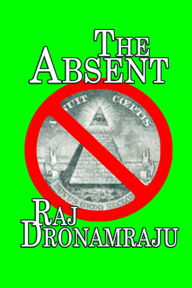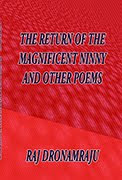Best thing I can do is post the chapter on Jones from my unpublished book of music essays TRUE IS THE DREAM MIXED WITH NOSTALGIA copyright Raj Dronamraju 2011. RIP George Jones.
WE CAN MAKE IT
It’s the voice that
hits you first. This is true of great
music. The voice is after all the
connection between us who are non-musicians and the music which is played on
instruments. We can marvel at the
technical expertise of a virtuoso guitarist but he is as alien to our daily experience
as the astronauts landing on the moon.
However, when we see another being
singing and we see the effort and we know we can make noises with our mouth
although they don’t sound anything as good as these singers we enjoy listening
to, we can somewhat relate to it. It is
after all the human body on some level like our own producing music directly.
With George Jones, it’s all about
the vocals. The fact that he records in
the country music genre is almost irrelevant.
If he’d been born in other circumstances and in another cultural
situation he would have still been a great vocalist in a different type of
music. George Jones has the range of 100
vocalists and his voice never fails to hit any of the notes. Jones’s voice is a precision tool. He alters it for every change of emotion in
the song’s lyrics. He knows when to let
it out and when to lower it for maximum effect.
That is not to say Jones’s voice is not powerful. At full throttle it is commanding but it is
not bluntly used to bludgeon the listener.
Classic country music, which is the
country music post World War II pre-1980’s, was a songwriter’s medium. The wordplay found in many of the songs was
light years ahead of what was being done in rock and roll pre-Beatles. This is wordplay as it fits into a song
similar to English Music Hall or Broadway not what Bob Dylan would bring to
rock and roll although Dylan himself had country music influences. After all, he would later make NASHVILLE
SKYLINE. This perfectly suits the intelligent
vocalist who knows how to interpret material and get the most out of it.
Country music today has unfortunately
become something else. It has lost all
its soul and country music was all about soul as “real” soul music was about
soul. It was music for people who worked
hard, who endured hardship. It was as
much about escape from a tough situation through the escape provided by music
as it was about connecting with their life and finding something to cling to
and even to celebrate.
Elvis Costello has said that modern
country music is like “Journey in cowboy hats”.
It has gone from being music with a lot of character shaped by the
giants of the genre to slick nothingness performed by interchangeable muppets. Part of it is who is making the music. Hard times made for great music as if life
experience is something that could be communicated through the music
itself. Although the life experience of
growing up poor usually with only one parent or in a household struck by
adversity doesn’t necessarily preclude greatness, it does make for a set for
experiences that art can readily communicate.
George Jones grew up poor with an
alcoholic father. Merle Haggard’s father
died when he was young and he spent time in prison. Tammy Wynette grew up in a sharecropper
family and picked cotton. Contrast that
with someone like Garth Brooks who was the captain of his high school football
team and grew up in a middle class home.
George Jones’ voice is partly the
voice of a life lived but it is more than a glorious expression of self. Jones uses it for maximum effect. One of the main ways he uses it to strangle
the delivery for an emotional punch. Instead
of a clear full throated tone, Jones has the ability to wring his voice into
knots like wringing a wet towel to get out the water. It’s a mystery how Jones is able to do that
and keep the volume of delivery the same as he slips back into a more normal
singing voice. This ability allows Jones
to express anguish in a more effective manner than any singer I’ve ever
heard. It’s as if this was a live event
and he was fighting through his tears to sing back going back and forth between
a state of reasonable calm and bouts with emotion.
A perfect example of this is the
song “The Door”. Again, songwriters have
crafted the perfect song for Jones to sing.
It should be noted that a significant contribution to Jones’s career as
this point was his producer Billy Sherrill who knew that a voice as expressive
and powerful as his deserved the appropriate instrumental arrangements. While there is a pedal steel and other
traditional country music instruments, Sherrill bathes Jones’ voice in a sea of
strings. Rather than making the feelings
expressed maudlin or overly sentimental, this creates a tension in the
music. Sherrill also co-wrote a number
of songs that Jones sang.
“The Door” starts off like more than
a couple of songs with a list of woes that have befallen the narrator. He tells of leaving his family and going off
to war but those are shrugged off as events he was able to buck up and take
like a man. However, what is worse than
earthquakes, guns, and wars is the closing of the door when his wife or
girlfriend leaves him. This is because
her leaving means the relationship is really over. At this point, Jones’ voice which had been on
autopilot so far rips into strangled sobs of regret. The lyrics of exaggeration find the perfect
voice to sing them.
One of Jones’ most famous songs “A
Good Year for the Roses” shows that he is also perfect in his restraint. His voice whether chugging along smoothly or
in strangled full emotion mode or or simply singing at the top of his lungs is
a big weapon. In “Good” he ruminates on
all that’s left behind when his wife leaves him. Here Jones is an actor playing the part of
the stunned dumped spouse only able to recite what he sees in front of him and
then a meaningless pleasantry that despite everything it’s been a good year for
the roses. Jones uses his voice
sparingly but very effectively. The
second recitation of the chorus at the point which describes the moment his
wife left and the door closed behind her allows Jones, however fleetingly, to
flash some emotion. That speed in which
he comes back to the final chorus and the numbed acceptance mouthing the
“roses” platitude creates a tangible feeling of loss and sadness in the
listener.
This is not to say that every song
Jones records is a downer. It is often
customary of a country music song to be a litany of complaints or descriptions
of sad incidents in the performer’s life.
This has occurred to the point wherein it’s become an object of parody
and in some people’s minds has become a cliché.
Jones is able to show joy with the same strangling of voice although now
it sounds like a man who can’t believe his own luck after getting something he
had waited for a very long time and after suffering much adversity.
An example of the happy Jones would
be “We Can Make It” in which the joy of love fills him with optimism that he
and his new partner can beat any problem and create a relationship that lasts. There is some reference in the lyrics to the
problems in the past (most notably drinking) but now the love of another person
heals him and keeps him safe and prevents him from going backwards to past
unhappiness. The stop and start
arrangement of the verses is perfectly suited for this as it allows Jones to
attack the chorus with full voice making the love felt. Jones was not only able to utilize his voice
in this manner on this song but also in the many songs he recorded with female
singers especially his ex-wife Tammy Wynette.
Jones’ voice is at its most
comfortable though in a song like “These Days I Barely Get By” where the
hardship reaches hitherto unimagined levels.
His wife has left him, his car has broken down, he walked to work and it
rained all the way, he is going to be laid off from his job, he lost what
little money he had betting on a horse.
Of course, the worst part is when his wife told him goodbye. Jones’ voice caresses this song. He nudges it forward and is able to extract
every last bit of emotion from the vocals.
As usual, among all the misfortune, the worst one, the one that stands
out is when the woman in his life told him goodbye and it is here that his
voice strikes. It is here that his voice
goes in for the kill.
George Jones’ discography is
gigantic. The box set ESSENTIAL GEORGE
JONES THE SPIRIT OF COUNTRY which came out in 1994 is perhaps the best place to
start as it neatly packs the best examples of Jones’ voice into two CD’s
covering the beginning of his career in the 1950’s up to the early 1990’s. He is the ultimate voice of despair. He is perhaps the best “reader” and
interpreter of a song’s full intent. He
also has the single greatest range of any singer I’ve ever heard in any genre of
music.












